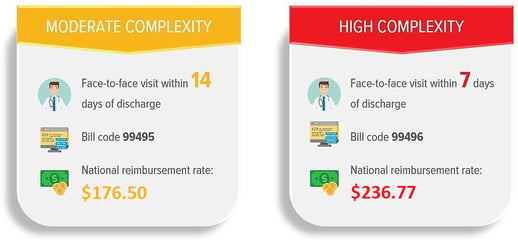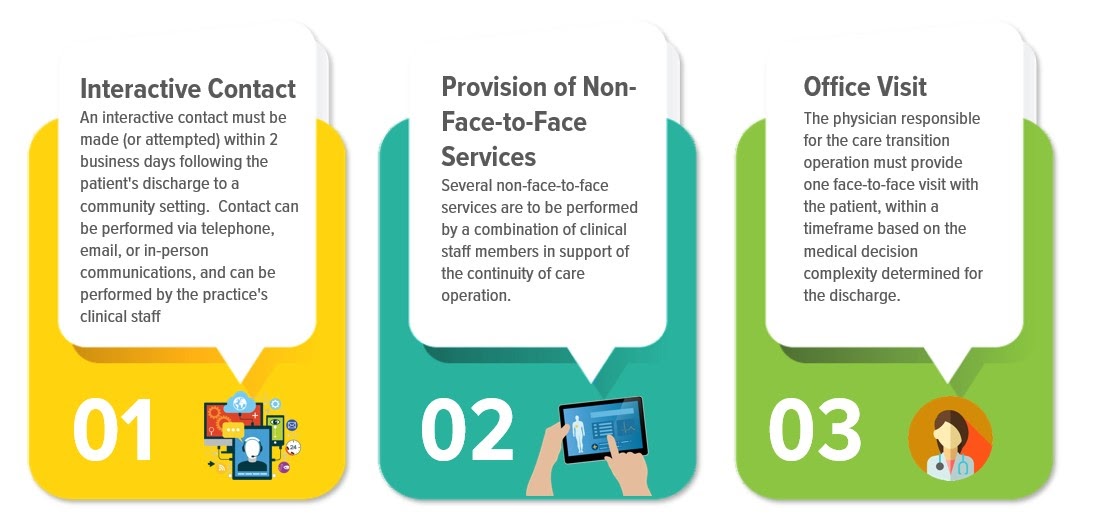Interactive Contact
CMS rules require an interactive contact to be made with the beneficiary and/or caregiver, as appropriate, within 2 business days after the beneficiary’s discharge. The contact can be made by telephone, email, or face-to-face.
The provider or clinical staff can make contact with the patient, provided they have the capacity for timely interactive communication in addressing patient status and needs.
A Face-To-Face Visit
Finally, CMS requires you to provide one face-to-face visit within certain timeframes. CMS uses two Current Procedural Terminology (CPT) codes to:
- CPT Code 99495 – Transitional care management services with moderate medical decision complexity (face-to-face visit within 14 days of discharge)
- CPT Code 99496 – Transitional care management services with high medical decision complexity (face-to-face visit within 7 days of discharge)
Please note that the face-to-face visits are part of the TCM service and should not be reported separately.






